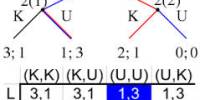Corporate insiders who trade stocks based on the knowledge they get on the job make far more money if they work for multinational enterprises than for U.S. businesses with no international sales. That’s the main finding of our new peer-reviewed research.
When a director or employee trades their company’s common stock or another security based on significant or “material” information about that business, this is known as insider trading. As long as the trader notifies the Securities and Exchange Commission and the information is already in the public domain, insider trading is not against the law.
We wanted to know if multinational insiders stand to make more money because of the complexity of the information they could possess relative to outsiders.
So we examined returns from over 2.5 million trades reported to the SEC from 1987 to 2019 by insiders at over 10,000 companies. Because we concentrated primarily on the transactions that were most likely to be influenced by the employee’s insight, this is only a portion of all insider trades that were reported during the time. We then compared monthly returns for insiders at multinational and domestic companies with those for a typical investor.
We discovered that all insiders outperformed the market, but those working for international corporations performed particularly well if they were at the very top of the corporate ladder. While insiders at domestic companies typically obtained a return of 2.4% in the month following a stock purchase, those at multinational corporations reaped 2.8%.
That may not sound like a lot, but, assuming consistent returns, it could amount to earning $170,000 more if an insider traded $1 million over several months. And it’s triple the typical stock market monthly gain of 0.9%
Executives and others with the deepest understanding of the business and its operations at global corporations enjoyed an even greater advantage, earning 3.6% per month compared to 2.7% at domestic businesses.
Why it matters
Insider trading is familiar to most people from movies that portray it in criminal terms, such as Gordon Gekko of “Wall Street.” In the film, he makes millions off others’ inside information.
But even when it is legal, insider trading is very profitable. This is because insiders who trade on disclosed information are more familiar with their business and have better information processing skills than outside investors.
With global companies, the advantage of being an insider increases. An observer or analyst may find it challenging to determine the company’s true worth and the value of its stock because multinational corporations create their earnings in nations with diverse currencies, cultures, economies, and operational conditions.
This is especially true if the corporation conducts business in areas that differ from the United States in terms of culture and language. Insiders can trade more effectively by purchasing undervalued stocks at a discount and then selling them for a profit in the future.
Employees are frequently encouraged to work harder by giving them a part in the company’s success, but if insiders appear to be gaining an unfair edge over regular investors, it might damage confidence in the financial system.
Regulators and policymakers may wish to think about whether further restrictions on insider trading are necessary, such as adding more restrictions to the timing or frequency of trades, in light of the extent and profitability of such trades, particularly in light of our findings.
What other research is being done
Researchers are looking into a variety of topics related to insider trading, including how trading restrictions are established and how insider trades affect markets when news is scarce.
We’ve recently conducted research on how insider trades by colleagues at the same company tend to cluster together, and we are currently looking at how innovation affects insider trading.
The incorporation of information into stock market prices and how investors underreact to news that could impact insiders’ ability to trade profitably are the subjects of another recently released project.
Similar to this, continuing study analyzes technical jargon that can be confusing to investors in order to measure the complexity of business regulatory filings and financial statements. This could also alter how outside investors comprehend stock prices compared to insiders.
















